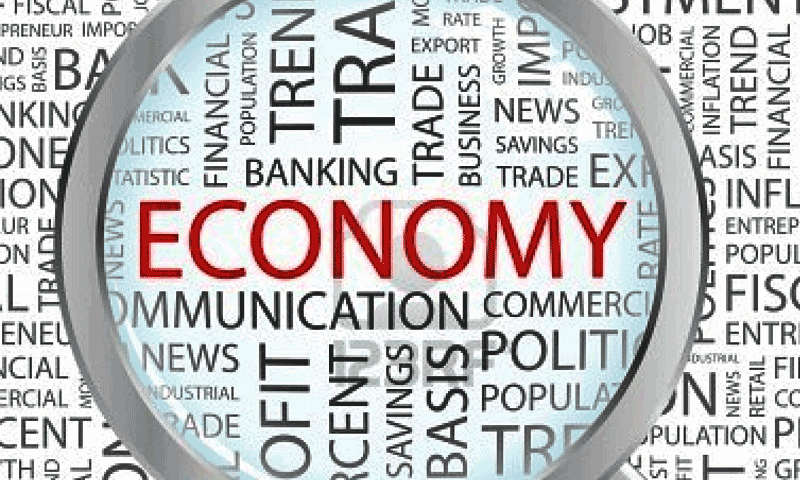EDITORIAL: Pakistani administrations have lamented the poor performance of their predecessors holding them responsible for the state of the economy. While this is relevant at the time they take over the reins of government but Pakistan Tehrik-i-Insaaf (PTI) government continues to hold previous administrations responsible for the state of affairs three years and three months into its five-year tenure. The question is whether this narrative is entirely credible?
The Asif Zardari-led government came to power in 2008 and subsequent to the end of the coalition with the PML-N appointed Shaukat Tarin as the finance minister who negotiated an International Monetary Fund (IMF) programme at a time when the country was fully supporting the US-led coalition in Afghanistan and successfully launched the Friends of Democratic Pakistan initiative which also generated pledges of considerable foreign assistance. True, that at the time international oil prices soared to 145 dollars per barrel, which together with massive subsidies extended by the Musharraf-led government prior to the 2008 elections, led to an unsustainable budget deficit that fuelled domestic prices (food inflation rose to over 24 percent), yet, given the rupee/dollar parity at the time, the domestic prices were a lot less than today when the per barrel price is a little over 85 dollars. No subsequent administration experienced as favourable a geopolitical situation as the PPP-led coalition government following the 2008 general elections.
The 2013 Nawaz Sharif government negotiated an IMF programme within months of taking over control, however, the flawed economic policies of its finance minister Ishaq Dar did much damage to the economy, particularly the massive rise in reliance on external borrowing (by arguing that the interest payable on foreign loans was less than the interest payable on domestic loans) without taking account of the usual annual rupee depreciation by artificially keeping the rupee overvalued as well as incurring foreign equity debt at rates well above the international level. These policies gave him fiscal space that was strengthened due to the plummeting international oil prices, the major import item of the country. The contraction of the budget deficit, a component of the IMF programme, kept inflation within manageable levels.
What is critical in the two IMF programmes is that neither administration bothered to implement structural reforms particularly as regards the extremely poorly performing power and tax sectors though efforts were made to contain the flow of circular debt,albeit unsuccessfully, and to raise revenue collection by the Federal Board of Revenue which was achieved by raising indirect taxes as opposed to direct taxes that are based on the ability to pay principle.
The PTI administration’s earlier team – Dr Hafeez Sheikh as de facto finance minister from April 2019 to 2021, and Dr Reza Baqir as governor of State Bank of Pakistan (SBP) from 6 May 2019 till date - negotiated with the IMF not only when Pakistan’s geopolitical situation had undergone a seismic shift but also agreed with the IMF team that upfront harsh conditions must be implemented as the previous 22 programmes failed because Pakistan did not implement structural reforms as they were to be implemented at the tail-end of the programme. Sadly, harsh monetary and fiscal policies were not on the back of structural reforms in 2019 till the onslaught of the pandemic but on the back of flawed policy decisions, notably linking the discount rate to consumer price index (CPI) instead of core inflation, allowing the rupee to be undervalued and raising indirect taxes still further. That situation continues to this day.
Thus, while the Zardari-led government relied on favourable geopolitical considerations, the Sharif government on extremely low prices of oil the Khan administration too has its own goose that lays the golden eggs--notably the remittance inflows that have continued to rise for the second year running and which should have provided the fiscal space required to not only contain the current account deficit that they inherited but also rein in inflation.
Disturbingly, this was not taken advantage of and Shaukat Tarin too presented a budget whereby the current expenditure rise is phenomenal – from the budgeted 6.34 trillion rupees in 2020-21 to 7.52 trillion rupees in the current year’s budget, a rise of 18 percent. It bears reminding that in these two years foreign loan repayment is budgeted at zero due to the G-7 debt relief initiative in the aftermath of Covid-19. The rise in expenditure is funded by a massive rise in borrowing domestically (from 16.5 trillion rupees inherited by this government to over 26 trillion rupees today) and from external sources (from 95 billion dollars inherited to over 126 billion dollars today) – both highly inflationary policies.
One would have hoped that better economic sense had prevailed in the technocrats selected by the three administrations (barring Asad Umar) to head the finance ministry; however, runaway expenditure and taxing the already taxed continue to be the hallmarks of our economic policies. It bears consideration that a massive decline in expenditure, requiring sacrifice by all recipients of budgeted allocations, would lower the IMF pressure on implementing politically challenging conditions.
Copyright Business Recorder, 2021























Comments
Comments are closed.